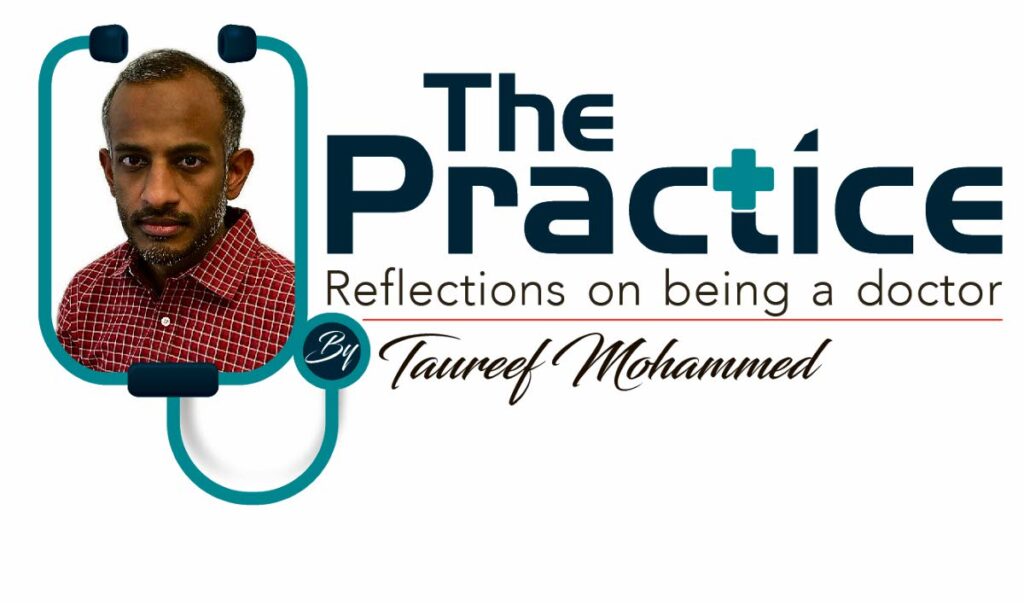The ‘home alone’ crisis

Taureef Mohammed
“MAN, IT’S either old people who are living alone, or IV drug users who overdose. That is what we get called for every day.”
The paramedic continued venting:
“A 98-year-old living alone. How? Why?
“They fall and can’t get up. Sometimes they remain on the floor for days until someone realises they haven’t seen or heard from them. They can die at home and nobody will know.
“Every shift, man, every shift, we expect it: an old person living alone or a drug user who overdosed. It’s crazy.”
I was chatting with the paramedic at a cultural heritage festival in London, Ontario, when I mentioned I was a physician working in the hospital.
“I don’t know how you all deal with it in the hospital. Something is wrong, man. It’s a real crisis.”
That the paramedic mentioned both groups – old people living alone and people who used drugs – in the same sentence suggested a commonality.
If you worked in a hospital it was not difficult to imagine how both seemingly disparate groups could be mentioned together: they were both patients who nobody wanted to manage. If we could look away from these “social, not-medically-active cases,” we all would.
“A 94-year-old man from home alone admitted with a fall,” the junior doctor said to the rest of the team on morning rounds, having just finished her overnight call. She said “home alone,” as one statement, like the title of the movie – the old man was in a precarious situation.
Everybody on the medical team knew the fall was the easy part of this case. We would run the algorithm, like we did for any other symptom, come up with a list of possible diagnoses and make a plan to manage the physical ailment – easy.
The plot thickened, though, when it was time for discharge and one realised the fall was a symptom of a bigger problem: like the drug addict who ended up on the streets or in the hospital, the old man had no place in this society.
Modern society is cruel.
“Why are you all trying to push him out? Dad cannot be discharged. It’s not safe for him to return home. He cannot live alone any more,” the old man’s daughter said.
The doctor thought: And you’ve only now realised this? Your dad hasn’t taken his medications for months and literally could not stand upright without two people holding him up; he has a sore on his bottom that is almost eroding into his coccyx bone, which tells me he has mostly been in bed. Where have you been all the time? Vacationing, eh? All those bloody cruises. Give them a break. And why can’t he come and live with you? Is it so difficult to pretend to be Italian for a few years?
The doctor said: “The hospital isn’t safe either. He can pick up a bad infection here.
“How can we help to make his home safer? I can ask the home care support team to contact you. Do you have any other family to support you?” the doctor-turned-diplomat said.
“I met with the home care people many times. They are unreliable and unprofessional. They drop in at different times, do the minimum and leave. They don’t even make an effort to get to know my father and then wonder why he swears at them when they try to change him. I am fed up of them. I gave it a chance and it didn’t work.
“I can’t do this any more. I can’t. I am getting sick. I myself haven’t seen a doctor in years. I have a special-needs daughter and a full-time job. My husband just got diagnosed with cancer and that’s why I haven’t been able to look after my dad as I did before.
“There’s only so much I can do. It’s just my brother and me, and my brother is useless. I love my dad, but I need to prioritise myself now. I need help. Please don’t send him back home.”
What do you want me to do? I am just a doctor.
“I am so sorry to hear. I can’t imagine what it has been like for you. Let me see what we can do,” the doctor said.
She consulted the social worker, arranged a family meeting, and then moved on to the next patient: a 90-year-old woman from home alone admitted with a fall and hip fracture.
Taureef Mohammed is a physician from TT working in Canada
E-mail: taureef_im@hotmail.com

Comments
"The ‘home alone’ crisis"